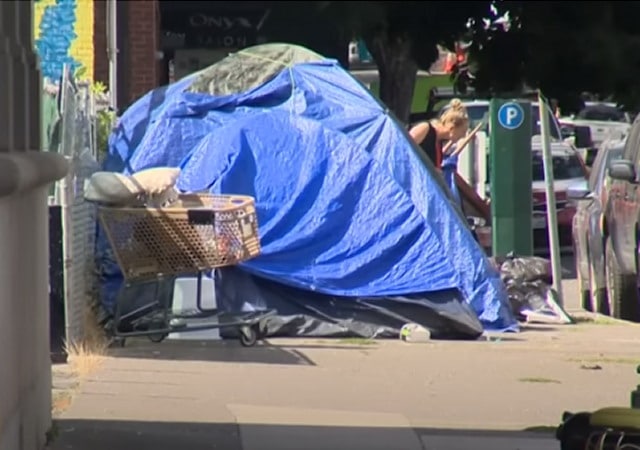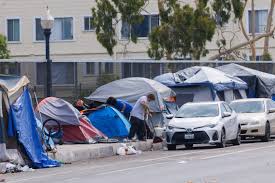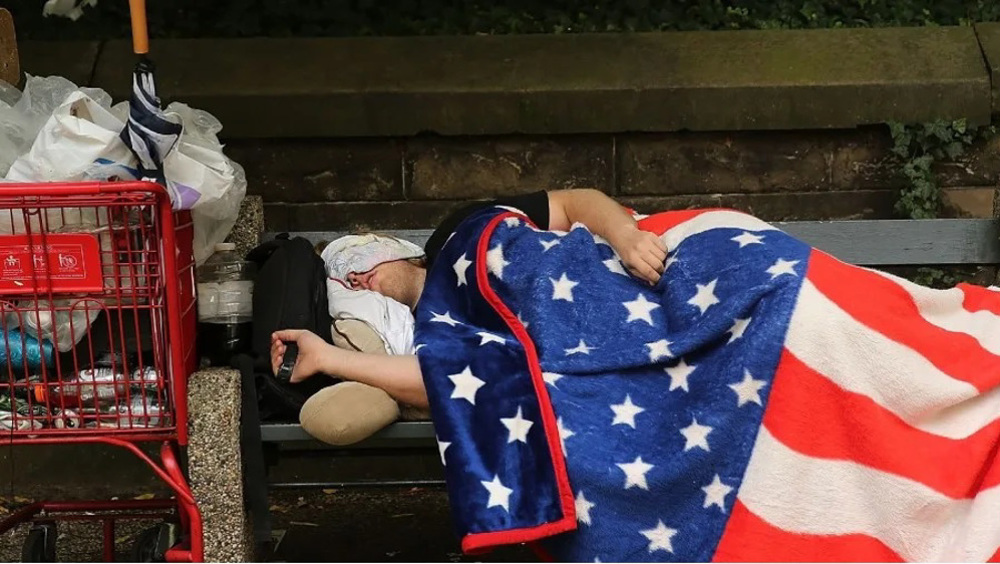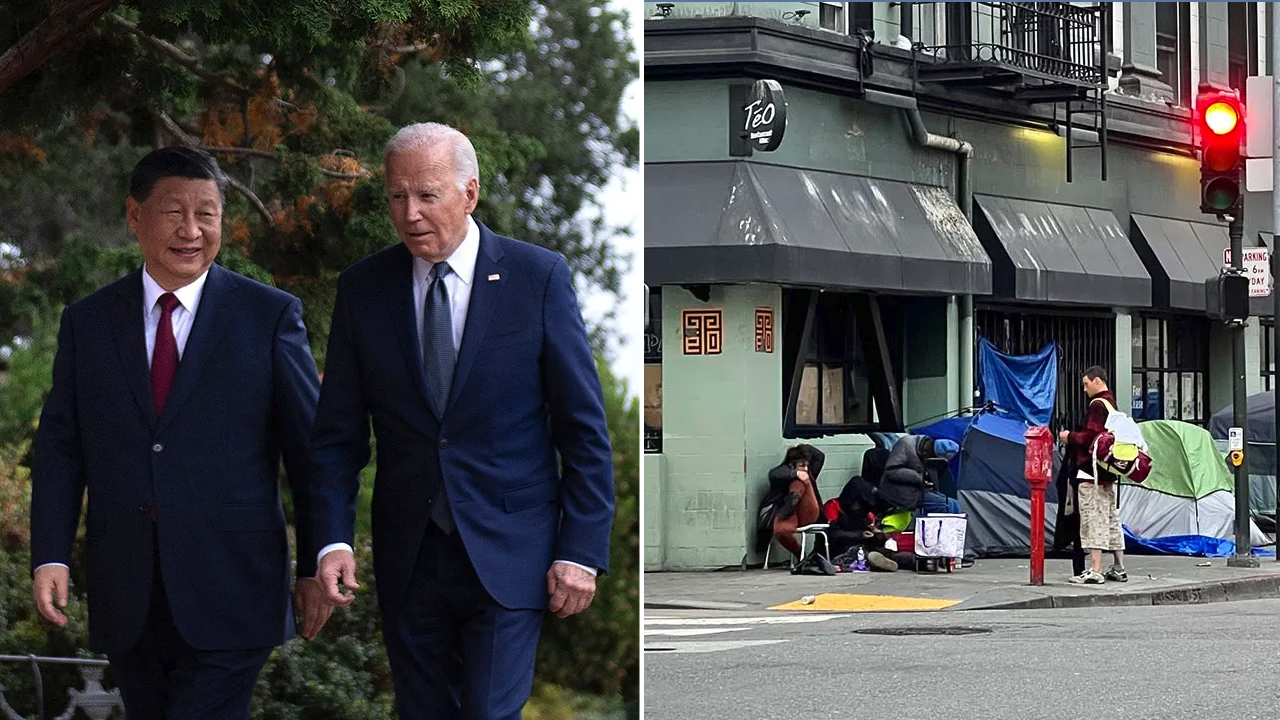









San Francisco, a city known for its vibrant culture and innovation, has been grappling with a range of challenges that continue to test its resilience. Despite the city's efforts to address issues such as homelessness and drug use, it still faces significant problems in these areas [5993e458] [76e6afb5] [9a365792].
In preparation for the Asia-Pacific Economic Cooperation (APEC) forum held in 2023, San Francisco underwent a rapid revitalization. Homeless encampments were removed, and temporary shelter was provided to those affected. Law enforcement officers were deployed to maintain order in the areas. However, these actions were criticized for their superficiality and failure to address the underlying problems. Many viewed the efforts as displacing vulnerable individuals without providing adequate support [5993e458] [76e6afb5].
The APEC forum brought together world leaders, ministers, and industry leaders, with one of the most anticipated events being the meeting between US President Biden and Chinese President Xi. While the talks did not resolve the US-China standoff, they signaled a desire to stabilize the relationship [5993e458].
Following the APEC conference, concerns have been raised about a resurgence of homelessness and drug use in San Francisco. Some business owners have expressed worry that the city is reverting to its previous state, raising questions about the effectiveness of the cleanup efforts. Governor Gavin Newsom has faced criticism for the timing of the massive cleanup, with accusations of prioritizing optics over addressing the city's ongoing issues. The cleanup extended beyond high-security zones, leading to suggestions that it was done for appearances rather than security reasons [76e6afb5].
A recent article from The Atlantic titled 'What I Found in San Francisco' sheds light on the ongoing challenges faced by the city. The article highlights the city's affordable housing crisis as a major factor contributing to issues with homelessness, drug trade, and crime. The number of homeless people in San Francisco is estimated to be around 7,754, and crime rates have fluctuated. The city has faced criticism for its treatment of the unhoused community, with some residents expressing hatred and engaging in violent acts against them. San Francisco has experienced population loss during the pandemic but has also seen some residents return. The article questions whether the city can find a way to coexist with its homeless population and criticizes city officials for their handling of public spaces and lack of vision in addressing homelessness and drug issues. The concentration of police officers in Union Square has affected response times in other areas, and retail areas have increased security measures due to thefts and drug activity. Despite these challenges, some residents continue to go about their daily lives, living with the scenes of drug use and homelessness nearby [9a365792].
In a broader context, the United States has seen a staggering 18.1% increase in homelessness in 2024, with over 771,480 people counted as homeless, according to the U.S. Department of Housing and Urban Development (HUD) [c7c3b462] [775e789e]. This annual count, conducted in January 2024, includes individuals living on the streets and in emergency shelters but excludes those staying with friends or family. The report attributes the increase to a worsening affordable housing crisis, rising inflation, stagnating wages, systemic racism, natural disasters, and the end of Covid-19 homelessness prevention programs. Notably, nearly 150,000 children experienced homelessness, marking a 33% increase from 2023 [775e789e]. The median rent in January 2024 was 20% higher than in January 2021, further exacerbating the crisis [38134b89]. Additionally, Black individuals, who make up 12% of the US population, represented 32% of the homeless population, highlighting systemic inequalities [8b379cb1]. Despite these alarming statistics, homelessness among veterans has decreased to the lowest number on record [8b379cb1]. HUD Secretary Adrianne Todman emphasized the need for evidence-based solutions to tackle these issues [775e789e].
The increase in family homelessness has been particularly concerning, with reports indicating a nearly 40% rise in family homelessness, effectively doubling in 13 major cities [62aa4778]. The 2023 increase in homelessness was linked to soaring rents and the end of pandemic assistance programs, which had previously provided crucial support to vulnerable populations [62aa4778]. HUD has responded by adding 435,000 new rental units in 2024, yet the demand continues to outpace supply [62aa4778].
In Connecticut, the situation mirrors the national trend. According to new data released by HUD, homelessness in the U.S. reached a record high in 2024, with over 770,000 individuals experiencing homelessness, an 18% increase from 2023. Connecticut reported 2,302 individuals experiencing homelessness, with less than 10 per 10,000 population. Of those, 17% were unsheltered, marking an increase of 395 individuals from the previous year. Ann Oliva, CEO of the National Alliance to End Homelessness, highlighted the urgency of the crisis due to affordable housing shortages and rising inflation [86a7d730].
Despite these ongoing struggles, there is still hope for San Francisco. Business owners, like Pankaew, remain optimistic that the opening of a new skating rink near their businesses will attract more people and boost the local economy. The resilience of the city and its ability to adapt to changing circumstances will be crucial in overcoming these challenges and creating a brighter future for all [76e6afb5].
Meanwhile, Chile, one of South America's richest countries, is also facing a homelessness crisis [a730b235]. The rate of homelessness in Chile has increased by more than 30% over the last four years, with the government registering 21,126 homeless people in 2024, compared to 15,435 in 2020. However, social workers estimate the real count to be around 40,000. The pandemic-induced recession, housing crunch, and immigration influx have contributed to the expansion of the homeless population [a730b235].
The housing crisis in Chile has been exacerbated by a 70% increase in housing prices over the last decade. The economic impact of the pandemic, combined with the 2019 mass protests, has made it difficult for many people to pay rent. The rise in migration to Chile has also contributed to the homelessness crisis, with nearly 1.6 million registered migrants in the country. Aid groups are pressuring the government to address the crisis, but there are currently fewer than 200 homeless shelters nationwide, which is not enough to accommodate the current homeless population. President Gabriel Boric has vowed to build 260,000 new government-sponsored houses during his term, but many fear it will not be enough [a730b235].
The challenges faced by San Francisco and Connecticut, as well as Chile, highlight the urgent need for comprehensive and effective solutions to address homelessness and housing shortages. Both cities are grappling with the social and economic impacts of these crises, and it is crucial for governments and communities to come together to find sustainable solutions that prioritize the well-being and dignity of all individuals [5993e458] [76e6afb5] [9a365792] [a730b235] [c7c3b462] [38134b89] [775e789e].